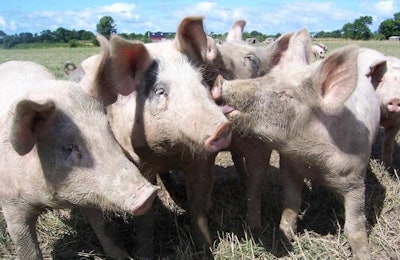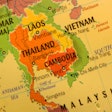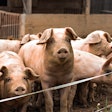
Cases of ASF have been reported for the first time in another province of the Philippines, while one of the disease-affected areas of Indonesia is calling for additional government support to control the infection.
Officials have confirmed the spread of African swine fever (ASF) on the island of Luzon in the Philippines.
Between August 23, 2019, and February 4, there were 38 more outbreaks of the disease, according to the latest report from the agriculture department to the World Organisation for Animal Health (OIE). Affected units are described as “mostly backyard farms,” involving a total of 17,406 pigs. Just over 100 animals died, and the rest have been destroyed.
Last week, it was reported that the ASF virus had been detected for the first time on Mindanao. These outbreaks were in the province of Davao Occidental, but the infection appears to be spreading elsewhere on this island too. Cases have now been confirmed in the provinces of Davao del Sur and Isabela, according to Philippine News Agency (PNA).
Pig farmers have complained that transport of pigs and pork products are halted as soon as ASF is suspected in an area. This can lead to hardship and severe economic losses, according to another report from the PNA. The city government in General Santos City is calling for the implementation of standard regulations on these movements to prevent unnecessary harm to the pork market when local governments lock down an area out of panic.
So far, ASF outbreaks are reported to be having little impact on feed demand in the Philippines.
Calls for government help to control ASF in Indonesia
Farmers in North Sumatra province are calling on the provincial government to take action to control ASF without culling healthy animals. Hundreds of them took part in a peaceful protest last week, reports The Jakarta Post.
The disease has killed 40,000 of the province’s pigs. Joining together in the SaveBabi (SavePig) movement, the farmers are protecting against the governor’s proposal to cull all pigs in the province in order to control the disease.
According to the head of the province’s food and livestock agency, North Sumatra does not have funds to control ASF in the region. It has requested INR46 billion (US$3.35 million) in additional support from the national government.
Further ASF cases in South Korean wild boar
In the border area with North Korea, a further 11 wild boar have tested positive for the ASF virus in South Korea. According to the latest report from the agriculture ministry to the OIE, these cases were confirmed in the period February 4-9. In the province of Gangwon, there were five cases in Hwacheon and one in Cheorwan, and the rest were found in the Yeoncheon region of Gyeonggi province.
Total number of ASF-infected wild boar has risen to 185, reports Yonhap news agency.
South Korea’s government is still to allow previously-infected pig farms to re-open, according to the same source.
Almost 400,000 domestic pigs have been culled as the result of 14 ASF outbreaks on farms during September and October of last year. However, the agriculture minister says the continuing cases in wild boar indicate the country is still vulnerable to the spread of ASF. He indicated the decision to allow the farms to reopen will be taken when there is evidence of a decline in cases among wild boar.
One new outbreak in Russia’s Far East
Two wild boar found in the Primorsky krai region have tested positive for the ASF virus, according to the latest report from the agriculture ministry to the OIE.
Vietnam’s veterinary agency has reported to the OIE that there have been no new ASF cases. According to this source, the most recent outbreak of the disease was in mid-August 2019.
Since the first ASF cases in China in August 2018, the disease has been confirmed in a total of 12 Asian countries (including Russia’s Far Eastern federal district). The infection has also been reported in Europe and Africa.
View our continuing coverage of the global African swine fever situation.


















